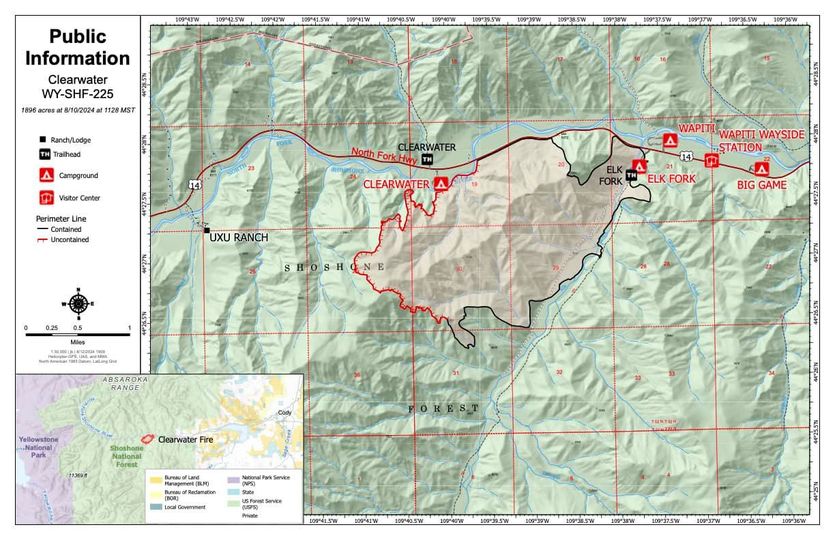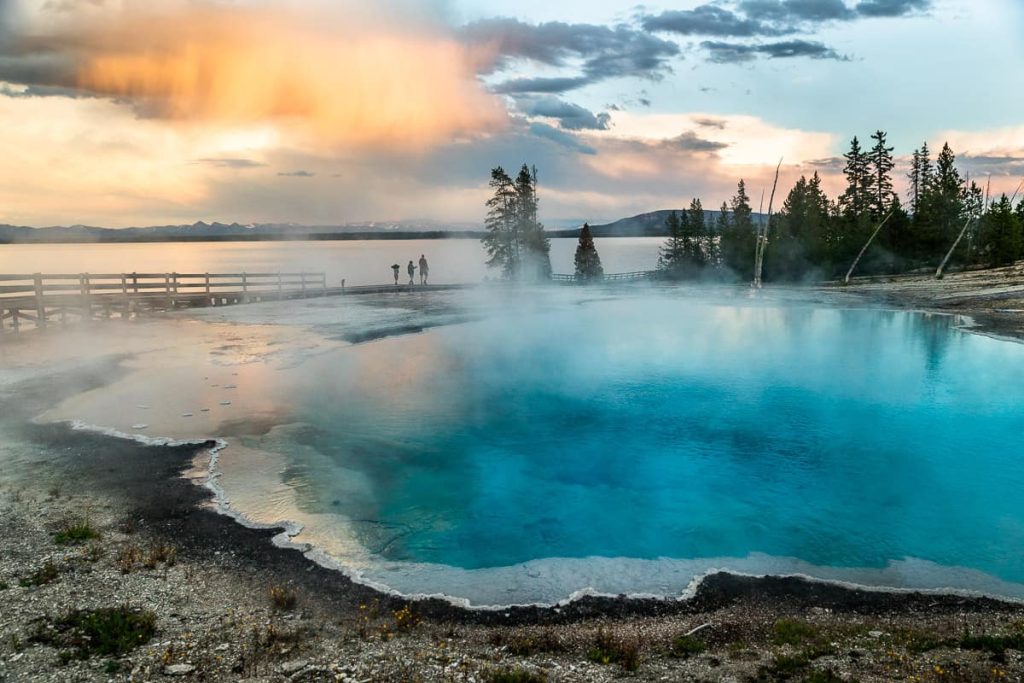Senator Lummis Act Reviewing Federal Habitat Classification Passes in US Senate
Written by Andrew-Rossi on May 11, 2023
Wyoming Senator Cynthia Lummis achieved a legislative victory in the U.S. Senate, marking another concrete step toward the possible removal of the grizzly bear and other species from the Endangered Species List.
On Thursday, May 11, a Congressional Review Act resolution introduced by Senate Western Caucus Chair Cynthia Lummis’ (R-WY) that would have retained the regulatory definition of habitat within the Endangered Species Act (ESA) passed the Senate by a vote of 51-49. By defining habitat, this CRA provides clarity and transparency for landowners and businesses in Wyoming and throughout the West.
“There’s an important distinction between ‘habitat’ and ‘critical habitat’ for an endangered species, and this Congressional Review Act resolution provides much-needed clarity for private property owners in Wyoming,” said Senator Lummis. “Private property owners need to be partners in species recovery, not the enemy. This CRA ensures the administration does not unfairly target Wyoming landowners and that habitat designations are based on science, not politics. I’m proud this resolution garnered bipartisan support.”
Before the vote, Lummis spoke on the Senate floor to urge her colleagues to pass the CRA.
A critical habitat designation has major impacts on landowners, as it reduces the value of any private property within a designation because prospective landowners recognize the burdens that accompany a designation. It also greatly impacts any land with a federal nexus through permits or funding, as a critical habitat triggers significant scrutiny, resulting in burdensome limitations on land use and costly mitigation requirements.
In December 2020, citing Weyerhaeuser Co. v. U.S. FWS, the Trump administration finalized a rule that defined the term “habitat” as “the abiotic and biotic setting that currently or periodically contains the resources and conditions necessary to support one or more life processes of a species.”
On June 24, 2022, the Biden administration finalized a rule that rescinded the 2020 rule, eliminating the habitat distinction, leaving regulated parties in the dark, and undermining the ESA’s purpose of protecting endangered or threatened species.
The Endangered Species Act directs the Secretary of Interior through the U.S. Fish and Wildlife Service and/or the Secretary of Commerce through the National Marine Fisheries Services to designate critical habitat for listed species.
The following animals and plants found in Wyoming are currently listed as endangered: the grizzly bear, whooping crane, black-footed ferret, gray wolf, yellow-billed cuckoo, Wyoming toad, northern long-eared bat, Kendall warm springs dace, Preble’s meadow jumping mouse, Canada lynx, blowout penstemon, Colorado butterfly plant, desert yellowhead, and Ute ladies’-tresses.
The CRA was cosponsored by Sens. John Barrasso (R-WY), Shelley Moore Capito (R-WV), Markwayne Mullin (R-OK), Dan Sullivan (R-AK), Pete Ricketts (R-NE), Katie Britt (R-AL), Ted Budd (R-NC), James Lankford (R-OK), Roger Marshall (R-KS), Jim Risch (R-ID), Kevin Cramer (R-ND), Steve Daines (R-MT), John Boozman (R-AR), Mike Crapo (R-ID), John Hoeven (R-ND), Ted Cruz (R-TX), Joni Ernst (R-IA), Bill Cassidy (R-LA), Deb Fischer (R-NE) and Roger Wicker (R-MS).
Rep. Cliff Bentz (R-OR) introduced a companion CRA in the U.S. House of Representatives.
It is supported by the National Water Resources Association, Northwest Public Power Association, Coalition of Arizona/New Mexico Counties, National Endangered Species Act Reform Coalition, National Association of Counties, National Association of Home Builder, Gas and Oil Association of West Virginia, Montana Stockgrowers Association, Montana Public Lands Council, Montana Association of State Grazing Districts, American Chamber of Commerce, National Rural Electric Co-op Association (NRECA), American Petroleum Institute, American Farm Bureau, Western Energy Alliance, National Mining Association, Independent Petroleum Association of America, Property and Environment Research Center, Public Lands Council, National Cattlemen’s Beef Association and the U.S. Oil and Gas Association.
On the same day, Senator Lummis (R-WY) voted in support of U.S. Senator Markwayne Mullin’s (R-OK) Congressional Review Act (CRA) resolution to overturn the northern long-eared bat’s listing as endangered under the Endangered Species Act (ESA). The classification would place an undue burden on Wyoming landowners, businesses and infrastructure projects without clear scientific evidence of the benefit to the northern long-eared bat.
“Listing the northern long-eared bat as endangered would create a regulatory headache for people throughout Wyoming,” said Senator Lummis.“There’s no evidence listing the northern long-eared bat would do anything to actually help the species, however, it would definitely cost hardworking people in Wyoming a lot of time and money. We can responsibly manage wildlife without killing jobs and destroying our economy.”
In Wyoming, the northern long-eared bat is known or believed to be native to Campbell, Crook, Niobrara, Sheridan and Weston counties.
The CRA passed by a vote of 51-49.



